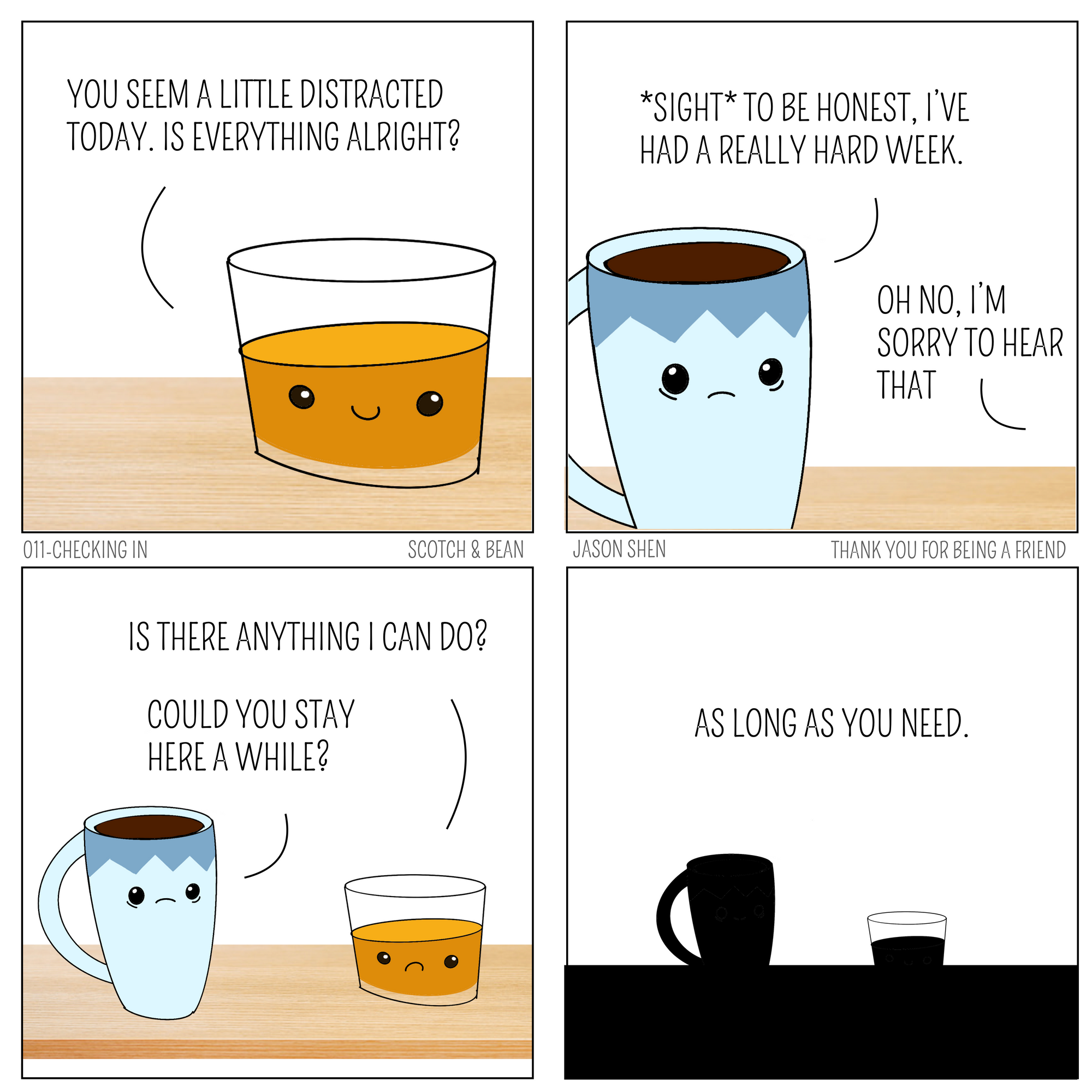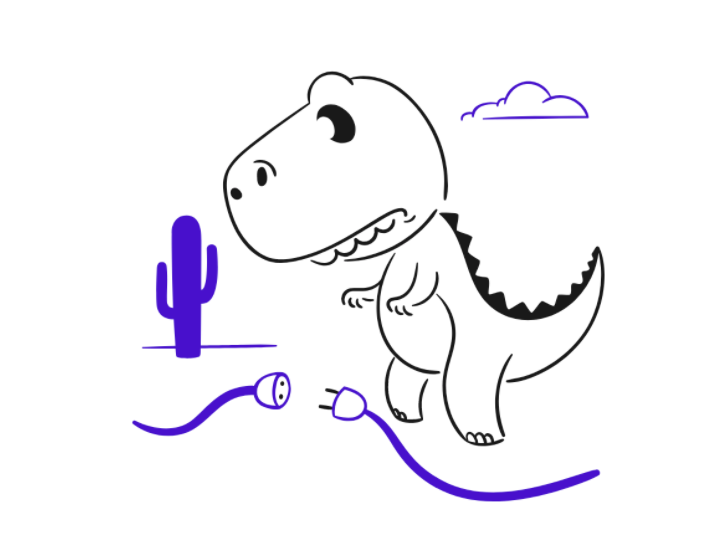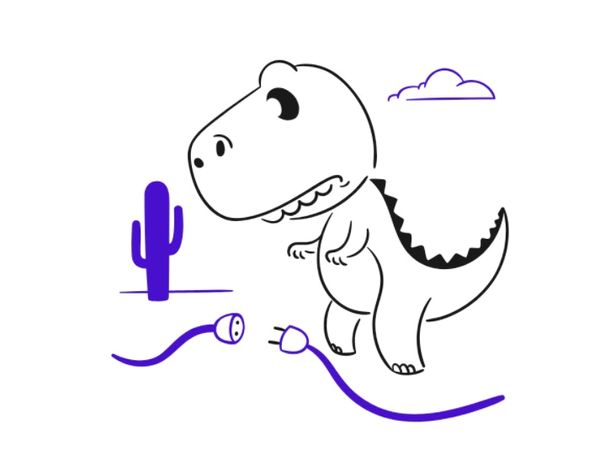Oh hello there,
This is the 46th edition of Making Connections, where we take a random (illustrated) walk down tech, fitness, product thinking, org design, nerd culture, persuasion, and behavior change.
Like what you see? Why not bring someone to the party?
🖼 Checking In

I brought up some tough topics at work this week. It wasn’t easy to talk about, but in the end, I’m glad I did it. The conversation around mental well-being and how much the outside world (pandemics, racism, violence, misogyny) affects employee productivity has really changed in the last few years, and I’m grateful to all those who have been fighting for it.
🧠 What was your Internet like?

What’s your favorite internet memory or scene? A couple that standout for me:
- That short-lived game where you could buy (and sell) your Twitter friends
- The first few months of Tiktok in summer 2020 as everyone went into lockdown.
- I was never into Livejournal but I was on Asian Avenue and later Xanga. So much of what we have today feel like remixes on those digital products / communities.
- On a separate note, I was digging around for Xanga’s history and I found out that in 2013 there was a campaign to “save / relaunch” Xanga that was only $60k which is honesty laughably small and yet sad that it failed. And internet censorship was apparently already a problem as evidenced with a comment on a blog post at the time.
- “John Hitler has let the MEologian & the xangaNazis run the show for too long INSTEAD of returning to Xanga's Wild West internet ROOTS...THIS used to be the place to SAY ANYTHING without the fear of being censured..NOW it's my granny's blogging site. Put the X back into Xanga”
- Fark.com and CollegeHumor (where something I made once got featured as one of the dozen or so “hot links” they’d publish with just 8-15 words to entice you to click.
I’m on this nostalgia tour if the early internet after reading a piece in the Atlantic about a book series documenting niche parts of the internet.
“For many of us, for better or for worse, the internet is home. Our communities are here, because many of them could not exist any other way. Superfans, shitposters, amateur experts, wiki nerds, grizzled forum moderators, obsessive sneaker enthusiasts, and hobbyists who spend a substantial amount of their time photographing vintage Furbies in human clothes, for example—the cultural and creative output of these communities is enormous and ever growing.”
The internet is the home that’s personalized for each of us. We log onto sites like Twitter or Reddit and see completely different things.
“But data alone can tell a future historian only so much, says Megan Ankerson, an associate professor at the University of Michigan who specializes in internet history. “The whole experience of what Facebook is or what it feels like to use it would not be able to be reconstructed in the archive,” she told me.
Even if every single website and every single online post were preserved somewhere for posterity, the feeling of the internet would still be missing—the petty arguments, the 3 a.m. rushes of inspiration, the thrills and heartbreaks and blue-light nausea. So how can we remember that?”
There is a difference between preserving the data or even the connections and network of a digital community and what it actually felt like to be in it.
“For Milks, doing research to remember a subculture that thrived in Yahoo Groups—which has been entirely dismantled—was especially challenging. Milks had downloaded some listservs at the end of 2019 but couldn’t access others. (By chance, one Tori Amos superfan kept an archive of about 20,000 emails from the time, and offered up access to Milks.) Al-Sibai had to reconstitute her memory of MySpace from whatever random screenshots she’d saved, or from Wayback Machine screengrabs of famous profiles. “Almost no profiles from the era I’m writing about still exist,” she said.”
Archiving is hard. Random people end up doing a better job than institutions. People are obsessive in a way that is hard to rationalize.
“Even so, the project’s vision is moving. Every person I know has a secret, intimate relationship with the internet that I, for the most part, barely know about. The series will bring at least some of those relationships to life. And it will remind readers about the fundamental precarity of their daily online life—as well as the way that precarity is unequally felt. “Platforms die because of corporate decisions that users have no say in,” Valens, the Daily Dot reporter, told me. Any world you inhabit can disappear, and it’s more likely to do so if it doesn’t have a real business case.”
Digital life is also precious and no less “real”
Read the whole thing: You Probably Don’t Remember the Internet (theatlantic.com)
👉 Cinemawins: stuff to love about movies
One of my favorite YouTube channels is one called CinemaWins and it’s a channel that notes little (and sometimes big) things that movies do well (aka “wins”) - even if the overall movie might not be the greatest. It’s the exact opposite that of CinemaSins, an older and still more popular YT channel that notes the errors, plot holes, and problems with movies (aka “sins”).
Related Issues
Trying something new here. Adding a manually curated list of “related issues” that connect back to something I’ve written this week. Let me know if you likey!
- My Pandemic Burnout Piece in Fast Company (mental health during COVID)
- 006: Protest Edition (racism, difficult work topics)
- 037: Technology’s Side Effects (the history of progress)
- 014: Our Spreadsheet Overlords (the importance of friendship)
That’s it for this week. I got my first dose of the vaccine (Moderna) so a little sore but no worse for the wear. We’ve heard the second dose hits different though.
-Jason
👨🏻💻 About Me
Jason Shen is an entrepreneur and business leader passionate about technology and human resilience. His past startups have reimagined transportation, recruiting, and gaming; backed by notable investors at Y Combinator, Techstars, and Amazon. As an operator, he’s built products and led teams at companies like Facebook, Etsy, and the Smithsonian.
Jason has written about productivity, resilience as well as the future of work in publications like Fast Company, VOX, TechCrunch and has spoken at events at TED, Google and The White House where his ideas have reached millions. He lives in Brooklyn with his wife, two kettlebells, and many piles of books.

